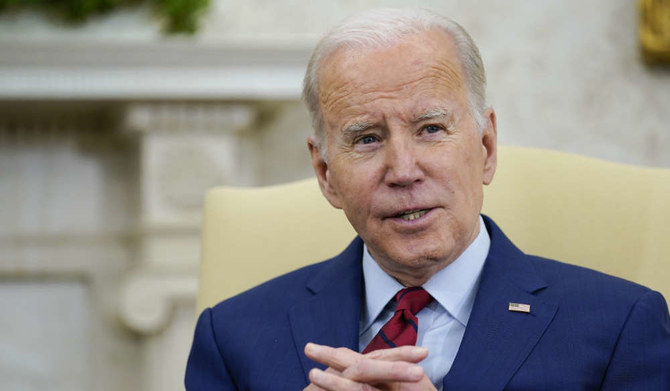
Part of the reason for my fascination with the classical Greek world is the beguiling notion that, if it can be understood, life itself can be understood. That is why I began my last book, “To Dare More Boldly: The Audacious Story of Political Risk,” looking at the story of the Pythia of Delphi, seeing the priestesses of Apollo as the first practitioners of the ancient and noble art of political risk analysis.
Carved deep in the dank cave where the Pythia made her predictions is an inscription that amounts to the Greek world’s ultimate contribution to philosophical thought: The Socratic admonition to “know thyself.” Just back from a week of grueling high-level meetings in Washington, where I met leading members of both parties for a series of candid discussions, I can say in all honesty that — if Socrates is the intellectual bar by which we are going to measure the world’s greatest power — it is failing, and doing so badly.
This is because both parties’ analytical observations stop with themselves. Obsessed with the all-too-real problems crippling their rivals, they seem unable and unwilling to come to grips with their own equally obvious political handicaps — problems that will surely consume one or both parties over the next three fateful years. However, the time frame of their political peril is different. For the Democrats, the problems are now; for the GOP, they are more in the medium term.
In terms of the 2022 midterms, the Republicans have always had history on their side. The party holding the presidency has lost House seats in 36 out of 39 midterm elections since the Civil War.
Beyond this historical record of “buyer’s remorse,” Republicans are in charge of the lion’s share of the statehouses and governorships that control the 10-year process of census redistricting of House seats, a new cycle that will be put into place in 2022. It is estimated it will give the GOP an extra 10 to 15-seat advantage going into the midterm campaign. As the Democrats presently only control the lower chamber by four seats, it was always likely that the GOP would regain control of the House in 2022.
What was not preordained was the possibility of a Republican landslide in the midterms. However, following on from Republican Glenn Youngkin’s surprise victory in the 2021 governor’s race in Democratic-leaning Virginia (a state Joe Biden won by a decisive 13 points over Donald Trump just a year ago), all the signs point to a significant Republican victory in the midterms, with the Democratic loss of the House seeming a foregone conclusion. The 50-50 Senate, meanwhile, seems to remain in play, even though 20 of the 34 seats up for election in the upper chamber are currently Republican-held.
What has gone so wrong for the Democrats? Gleeful Republicans forensically shared with me the symptoms of the Democratic Party’s disease. First, the Biden administration is not getting credit for its historically significant legislative achievements, while the ugly sausage-making manner of the law-enactment process seems to be counting as a mark against it. People have already factored in the popular $1.1 trillion bipartisan infrastructure bill and his earlier $1 trillion-plus COVID-19 emergency bill. The Democrats’ negotiations with themselves have made for a publicly unedifying scene, as in this time of COVID-19 — a worldwide historical emergency — the Democrats have seemed petty and small, navel-gazing about themselves at the expense of the country.
At the same time, voters increasingly (correctly in my view) think the party has been worrying about every issue under the sun except inflation, the one issue that matters. A mid-October Fox News poll found that 53 percent of voters said they were extremely concerned about inflation; no other issue topped 50 percent.
With inflation soaring to 6.2 percent in the US last month and with the Democrats pouring fuel on an already raging fire, given their gigantic spending bills, an increasing majority of voters fault the ruling party for having loosed the beast of inflation, quelled now for 40 years by Paul Volcker and Ronald Reagan. The Biden administration seems to have forgotten the basic political rule that, while unemployment is terrible for the minority of voters afflicted, high rates of inflation affect literally everyone, serving as a form of taxation on the living standards of the working poor and lower middle class. This has obvious and drastic political consequences.
Lastly, rather than repairing the breach in American political life, following on from the chaos and hyperpolitical partisanship of the Trump years, to many voters Biden has instead served as an empty vessel for the excesses of the out-of-control progressive left of the Democratic Party. The Biden White House seems to have forgotten it won the Democratic nomination in 2020 precisely because Biden was not a leftist, unlike Sens. Bernie Sanders of Vermont or Elizabeth Warren of Massachusetts.
Rather than wanting the new Biden team to embark on the most ambitious, leftist-leaning domestic agenda since Lyndon Johnson’s “Great Society” programs of the 1960s, voters wanted a moderate, decent Biden to inaugurate a period of peace and quiet. Biden’s misreading of his narrow mandate to instead enact gigantic social spending bills may be his greatest mistake of all.












